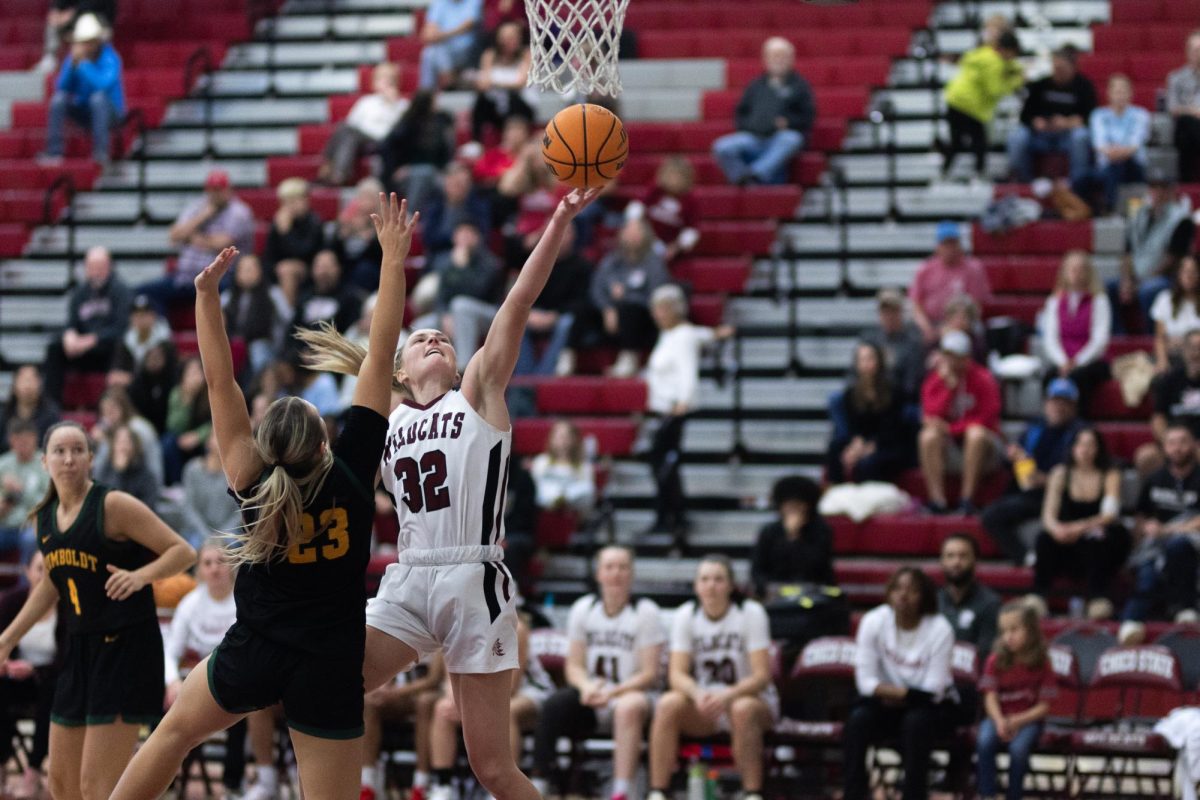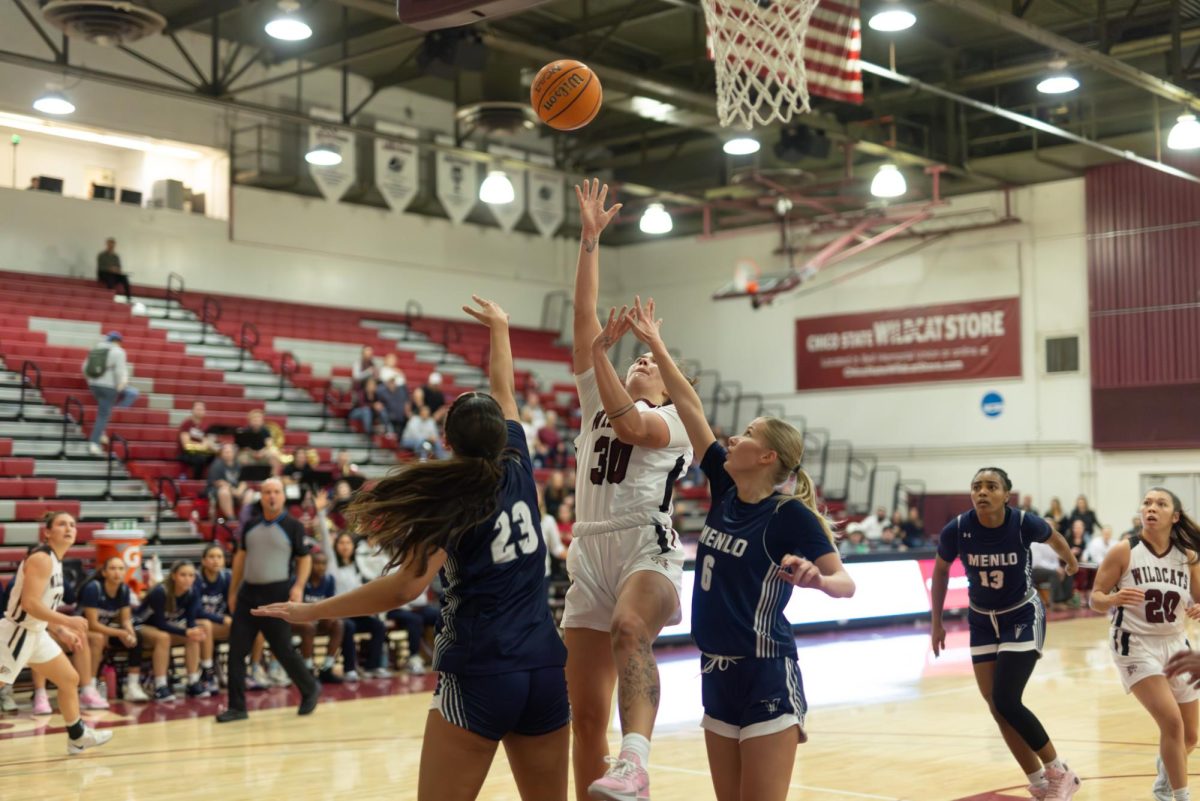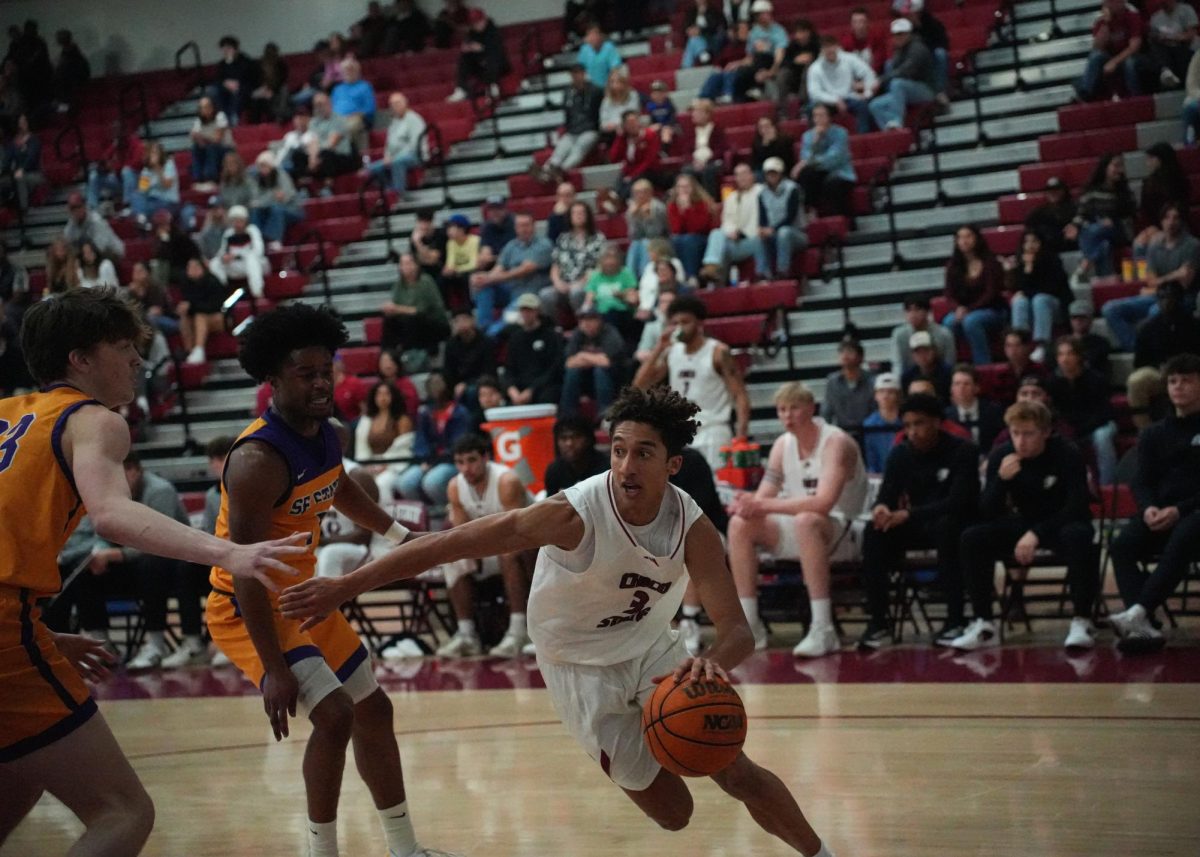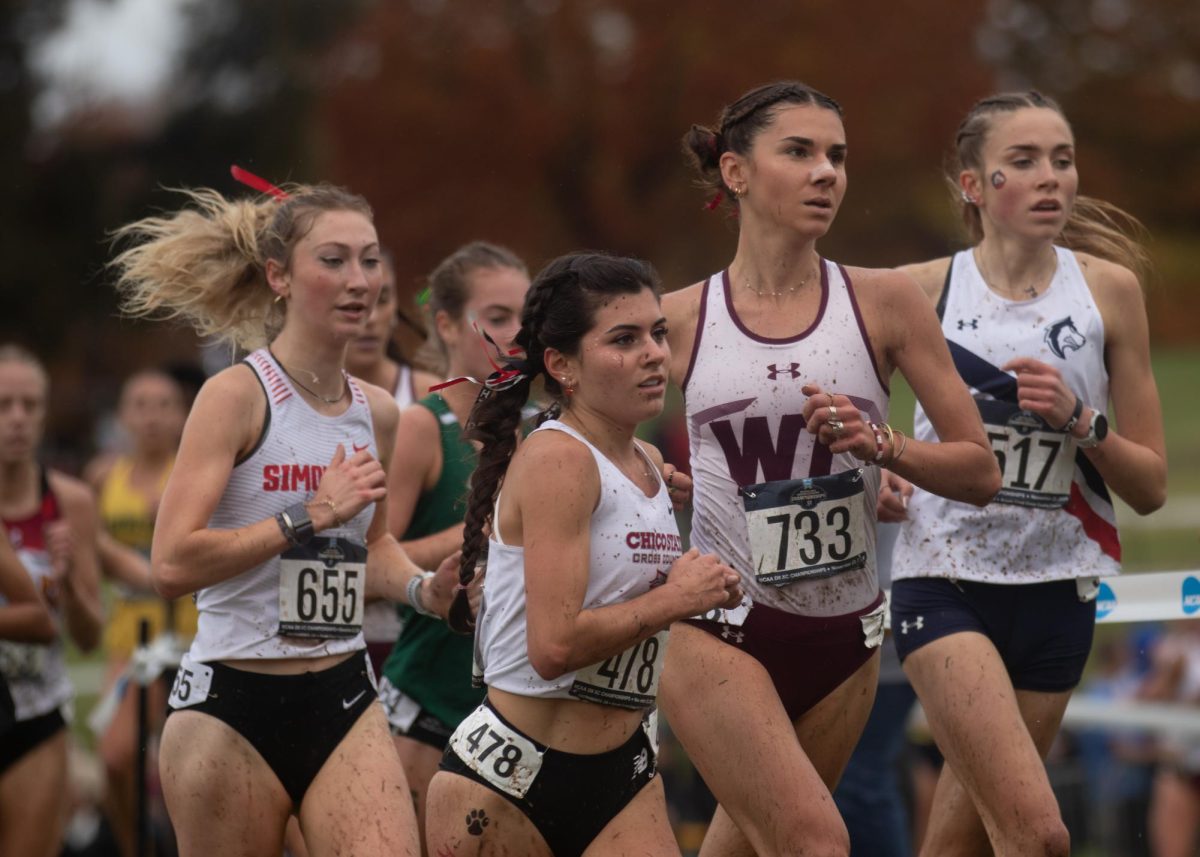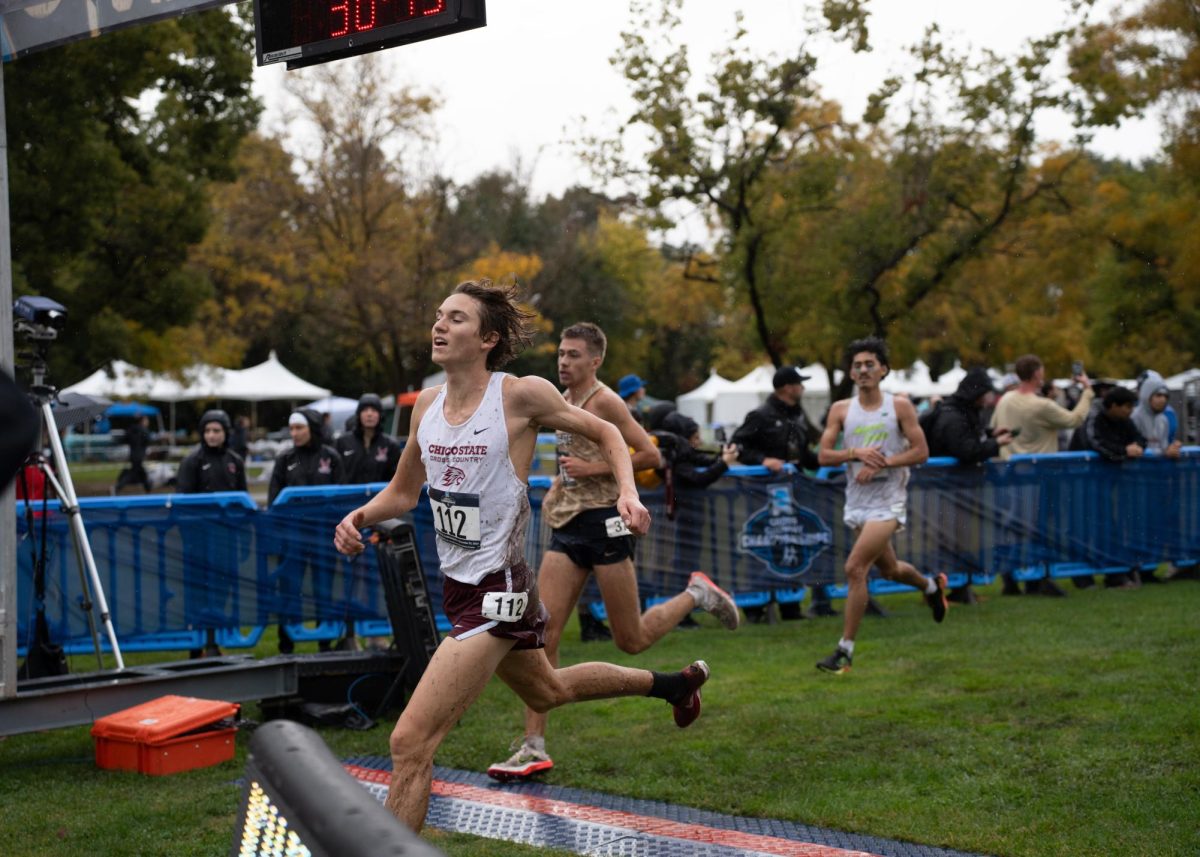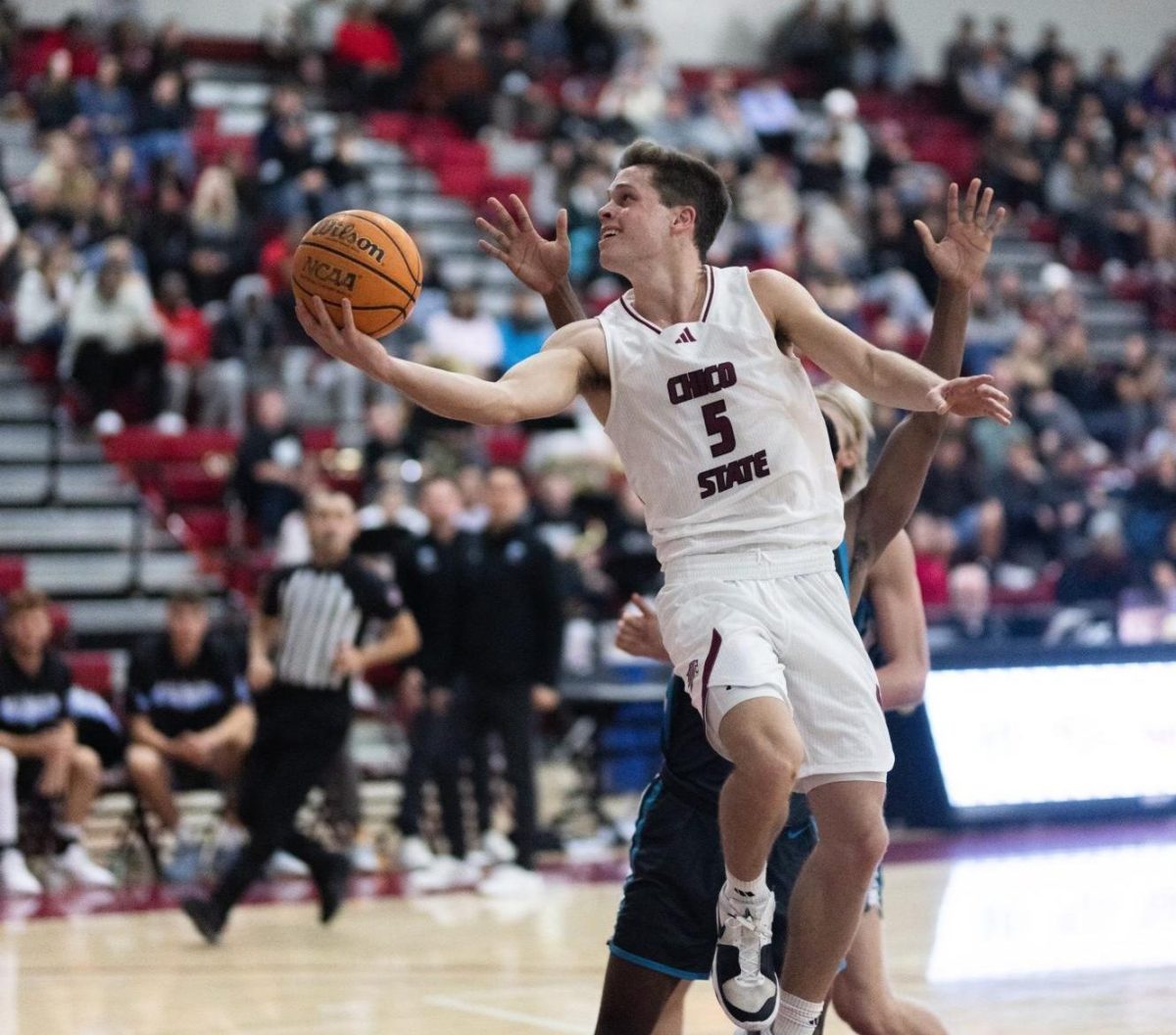The dream of growing up and being a professional athlete like LeBron James or Peyton Manning will not come true for more than 98 percent of college athletes.
At Chico State, many students are contemplating post-college careers that have nothing to do with sports, while others have their eyes on going pro.
Some college athletes do not want to pursue a professional career and would rather go back to help their communities. Former Chico State men’s basketball guard Damario Sims had a chance to continue his basketball career but chose to return to his West Oakland home.
“Everything happens for a reason, and I wanted to come back and help my community,” Sims said. “It would have been nice to make good money and keep playing ball, but that wouldn’t have helped people back home.”
Sims is currently working for a foster family agency in Oakland and is pursuing a career as a probation officer. He hopes to be part of the coaching staff for his former high school basketball team and help young athletes who look up to him as a former college basketball player.
Student-athletes have different chances of making the big time depending on the sport they play, according to statistics released by the NCAA in 2012.
The sport with the highest opportunity was baseball, where players have a 12 percent chance of going pro. Football players have a 1.7 percent chance of playing professional ball, and basketball players have a 1.2 percent chance. The odds of a person becoming a professional right after high school are even lower. Almost every player in every sport has less than a 1 percent chance.
These numbers make Chico State’s graduated professional athletes a proud few. Troy Neiman, a former Chico State pitcher, signed with the Colorado Rockies organization this summer. More recently, former men’s basketball center Jason Conrad signed with the Zorg en Zekerheid Leiden club in the Netherlands.
One sport that the NCAA did not give data for was golf, where aspiring professionals can simply fill out a form and declare themselves professionals, said Ricky Owaki, a senior on the Chico State men’s golf team. But players have a difficult time making a living if they can’t qualify for PGA tournaments.
Golfers can break into pro tournaments by winning a series of mini-tours or by beating the competition at a qualifying match before a tournament, Owaki said.
Owaki will decide whether to pursue a professional career after his final year of college golf, he said.
“If I do well this season and into the postseason, I will probably go with my roommate after graduation and try to play in the Australian tour or Asian tour,” Owaki said.
The difficulty of breaking into the big leagues means every student-athlete should get their degree before leaving college. It’s just like the NCAA slogan goes:
“Just about all of us will be going pro in something other than sports.”
Sergio Sanchez can be reached at [email protected]



